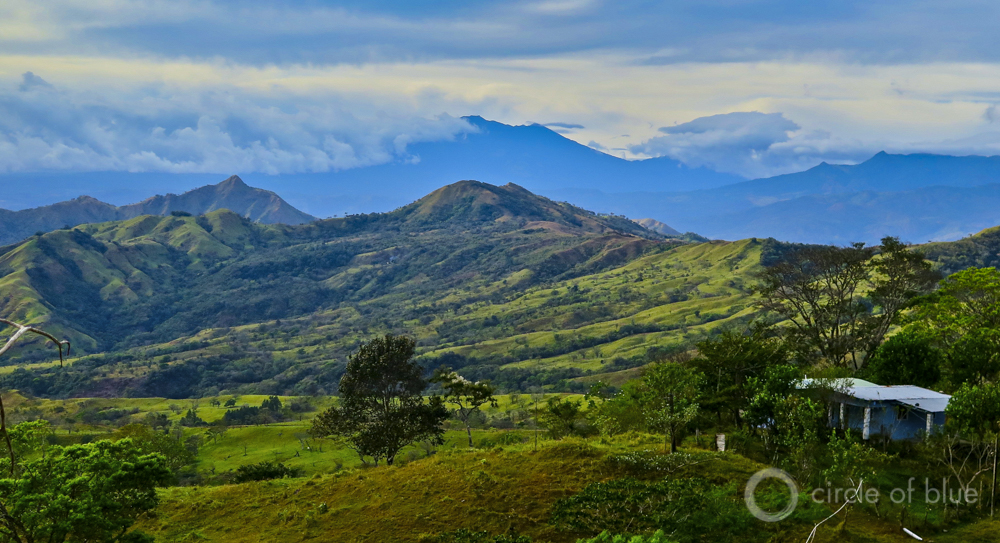In another great article by By Keith Schneider at Circle of Blue, he examines the dilemma in Panama over the need for hydro power.
CHANGUINOLA, Panama – Rain clouds regularly settle atop the 1,800-meter (5,900-foot) summits of the Cordillera de Talamanca, the mountain spine that separates the Pacific Ocean from the Caribbean in Panama’s Bocas del Toro province. When the mist clears, the full measure of the blue sea, powerful rivers, and splendid forests full of toucans and cacao trees is visible and stunning.
In the five centuries since Christopher Columbus alighted on the beaches of Bocas del Toro in 1502, western Panama’s water-rich tropical bounty has enticed outsiders, built financial fortunes, and led to periodic and fierce popular resistance. In 1899, for instance, American growers tore down tens of thousands of hectares of rainforest and planted the trees that produced the Chiquita-brand bananas that are still shipped from the port at Almirante. From time to time, including a violent confrontation with government security forces in 2010 that left one person dead, Chiquita’s unionized workers organized big disturbances and determined strikes over wages and working conditions.
That same stubborn spirit, widespread across this province of 126,000 residents, still animates the region. It stirs a decade-long battle in the Changuinola River watershed driven by the construction of hydropower projects and by Panama’s shifting views about energy production, economic growth, social fairness, and the value of its prodigious wild forests and water resources. No other Central American country is reckoning with these often-conflicting features of national life with as much consideration and consequence as Panama.
“This is an exciting period for this country,” said Osvaldo Jordan, a 43-year-old biologist and political scientist educated in the United States who leads the Alliance for Conservation and Development, a human rights organization in Panama City.
“Twenty-five years ago we were a military dictatorship,” Jordan went on to say. “Fifteen years ago we gained control of the Panama Canal. The last ten years our economy has grown so fast. We have choices to make. There are different definitions for defining modernity. The biggest challenge for Panama is to find the right definition.”
